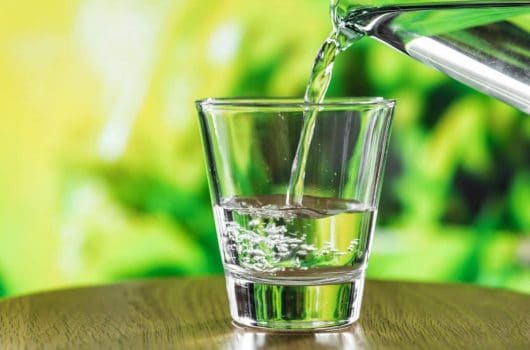Every human being on this planet needs water to survive. This is an inescapable fact which is preached by doctors and self-proclaimed specialists alike. Regardless of the qualification of the person that is prattling off about his concept, they are correct.
We all do need water to survive. But, once that is out of the way, are babies, not people too? If we follow this line of reasoning, then it is safe to assume that a baby needs water if they are to be healthy. There are however some mitigating circumstances here that need to be addressed before you start giving your baby water.
What Is the Short Answer?
If you are looking for a short answer, then here it is. Babies should not be drinking water before they are six months old. Once they have reached six months, then you can start giving your baby sips of water here and there.
But you should certainly not overdo it. Only once a baby is eating solid foods, at around the 1-year mark, can they start drinking water in the same sense that adults do. Even then, however, they should not be drinking too much water.
Why Shouldn’t You Be Giving Your Baby Water?
If we are going to answer this question accurately, then we will first need to address why a person needs to drink water in the first place. We do not drink water just because we drink water. We drink it because it has a physiological purpose once it enters the body. The main thing that water does is that it hydrates the body.
A human being is made up of at least 57% water, a value which can even reach 65% in well-hydrated adults. This is a value that needs to be maintained throughout the day or the cells in your body will start to shrink, which is surely not a desirable thing.
There are many processes which go on in the body every second of every day that uses up water. As you breathe, there is some water vapor that you expel. The sweat that accumulates on your brow is also water, as is the urine that is expelled a couple of times a day. When you glug down a glass of water, what you are doing is replacing the fluids that have been lost as your body goes about its business.
A Baby Is Made Up of Even More Water Than An Adult
A fully-grown adult may be made up of more than 50% water, but the body of a baby has even more water in its composition. Before a baby turns one year old, they are made up of almost 78% water. This means that their hydration should be more important than that of an adult. But that is where breast milk comes in or even formula.
You do not keep a baby hydrated by feeding them water. You keep them healthy by either feeding them breast milk when they are hungry or by following the specific guidelines that are set out on the bottle of formula in the kitchen.
What Is the Problem with Giving Baby Water?
The answer here is twofold. The first and most obvious one being, that if you are giving a baby more water than they need, then you are just filling up their tummies. A baby who is full will not eat anything no matter how hard you beg them. They will not be able to discern the difference between a belly full of food and a stomach full of water.
If they are not eating because they have had too much water, then you run the risk of your little one not getting enough nutrients from the food that it is supposed to be eating.
You also might land up giving the poor tyke a stomach ache if it is getting more water than it needs at such a young age. The pain of which you will feel alongside your child as their wails of despair echo through the room.
The Real Danger Involved with Over-Hydrating A Baby
The next few bits of information are not here to scare the living daylights out of young new parents. Bringing up a child is no easy feat and there seem to be new horrors popping up around every corner.
There is a genuine danger when it comes to giving fresh babies water, but if you are feeding them when they are hungry and following the guidelines as set out by the doctor then you should relax, you are doing just fine.
When it comes to hydration in the body, it is not only water that is important. There are also electrolytes that need to be maintained for proper functioning. These are charged particles that are essential for bodily functions. When a person has too much water in their system, then these electrolytes get diluted, and they cannot do their job correctly.
At first, this might only present as a headache but if the condition persists then a person or a baby could have severe seizures that could result in a coma.
What Should Your Takeaway Be?
If you are feeding your child breast milk, then keep doing that when your baby is hungry. If, you are maintaining your health, then the milk your body is producing will have all the water that your baby needs. It will also have the nutrients and vitamins that are responsible for helping your little one grow into a healthy toddler.
When it comes to formula, the solution is just as simple. Follow the guideline to the tee. Do not dilute the formula. Do what it tells you to do, no more and no less. If you maintain these principles for the first six months, only then can you start introducing small sips of water into your baby’s diet? Trust the formula and trust your body, both of which have your baby’s best interests at heart.
